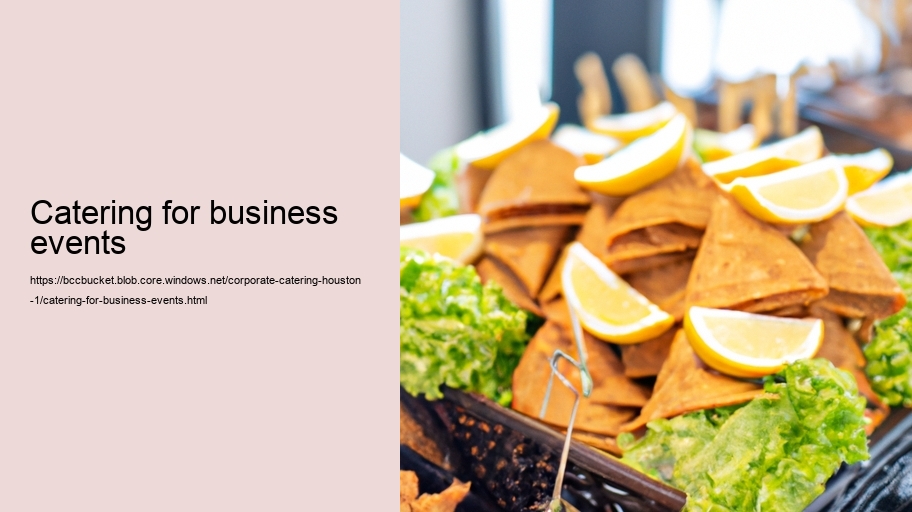Catering for business events is an integral component that can significantly influence the success and overall experience of corporate gatherings. Whether it’s a small meeting, a large conference, or an elaborate gala, the provision of food and beverages has the power to leave a lasting impression on attendees and can reflect the professionalism and brand image of the hosting organization.
Firstly, catering plays a crucial role in satisfying one of the basic needs of attendees: nourishment. Providing meals or snacks during an event ensures that participants remain focused and energized throughout proceedings. It's important to consider timing; for example, morning events may require breakfast items such as pastries and coffee, while afternoon sessions might call for a light lunch or substantial snacks to prevent an energy dip.
Customization is another key aspect of catering for business events. Menus should accommodate various dietary restrictions and preferences to ensure inclusivity. Vegetarian, vegan, gluten-free, halal, kosher—these are just some options that caterers must be prepared to provide. In doing so, they not only guarantee that every attendee feels valued but also avoid potential health complications.
Quality cannot be understated when it comes to corporate event catering. The standard of food reflects directly on the host company’s attention to detail and commitment to excellence. Fresh ingredients, expert preparation, attractive presentation—each element contributes towards a positive perception among clients or employees.
Moreover, catering offers networking opportunities in informal settings like coffee breaks or cocktail hours where people tend to mingle with greater ease over shared meals or drinks. In these moments lies potential for relationship building that could lead to future partnerships or collaborations.
Efficiency is paramount; professional caterers understand how critical timely service is within tight event schedules. Delays in serving food can disrupt agendas and may result in negative feedback from participants who value punctuality.
Catering services also adapt seamlessly into varying themes and formats of business events—from casual buffet-style lunches encouraging interaction among attendees to formal sit-down dinners which may include multiple courses meticulously paired with wines suitable for impressing potential investors or high-profile clients.
Furthermore, sustainability practices are increasingly becoming central in catering decisions as businesses aim to minimize their environmental impact through choices like locally sourced ingredients, reduced plastic use, and managing food waste responsibly—an effort appreciated by environmentally conscious stakeholders.
In conclusion, effective catering is much more than simply providing sustenance—it enhances attendee engagement by considering diversity in tastes and dietary requirements; showcases quality which reflects upon the host’s brand; facilitates networking opportunities; ensures efficiency without compromising schedules; adapts flexibly according your needs whether they're grandiose celebrations down-to-earth workshops all while upholding sustainability values expected modern companies today thus making indispensable part organizing memorable impactful business events era global connectivity heightened awareness around both social environmental issues alike.
